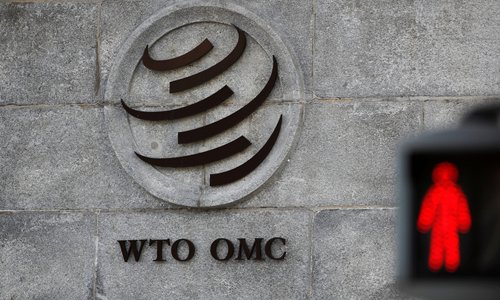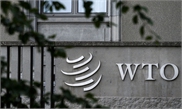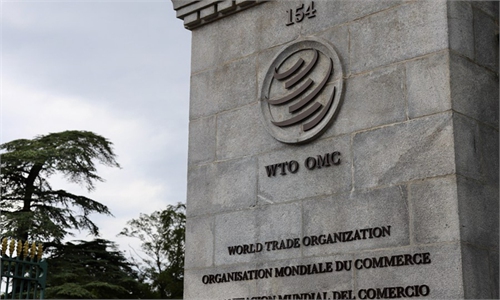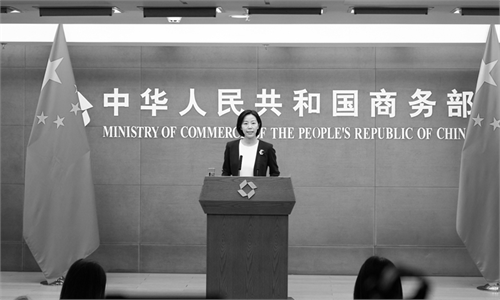
The WTO headquarters in Geneva, Switzerland Photo:VCG
The EU's possible filing of a complaint over the US so-called Inflation Reduction Act (IRA) at the WTO represents widespread global concerns, including those of China, for the foreseeable damage that US subsidies will have on global free trade and a level playing field, experts said.
The EU's move mirrors the rising dissatisfaction of the closest allies of the US and the division of the West, driven by the fact that the US is pursuing its own national interests at the expense of others, Chinese experts noted.
The head of the European Parliament's Trade Committee, Bernd Lange, said on Sunday that the bloc should file a complaint with the WTO over the IRA, which was passed by the US Congress in August, Deutsche Welle (DW) reported on Sunday.
The IRA triggered concerns in the EU that it may put many European firms, including carmakers and green technology companies, at a disadvantage, according to the report.
The latest move showed that the EU is dissatisfied with the practice of the US, which provides subsidies at the expense of others for its own national interests, Bai Ming, deputy director of the international market research institute at the Chinese Academy of International Trade and Economic Cooperation, told the Global Times on Sunday, noting that the IRA violates anti-subsidy regulations in international trade and creates unfair competition.
The IRA provides up to $369 billion in government subsidies to support electric vehicles, key minerals, clean energy and power generation facilities production and investment, with as many as nine tax incentives based on production and sales in the US or North America as a prerequisite.
Some provisions in the act that intend to limit China have also met with opposition by the EU, because of its large investments in China, Bai said.
During a recent state visit to the US, French President Emmanuel Macron called the IRA "super-aggressive" and warned that it could divide the West, according to DW.
German Economy Minister Robert Habeck said at the country's annual industrial conference on November 29 that "we need our own European, robust response" to the IRA.
For now, the EU and the US are still at the bargaining stage on the issue, Bai said. "This does not rule out the possibility of an intensified contradiction between the two sides, though the US might revise some of the content as it still needs the backing of the EU on the Ukraine crisis," Bai said.
The EU's intended move came in response to the demands of its companies, which are under pressure from the US subsidies. Although the EU has expressed its opinion and conveyed this to the US, it seems that it has not received a response, which is pushing it to solve this problem through the WTO, Gao Lingyun, an expert at the Chinese Academy of Social Sciences in Beijing, told the Global Times on Sunday.
However, the IRA has already been adopted, and it will definitely not be repealed. The EU is well aware of this, but it seems that it must offer some resistance, Gao said. "Even if the EU does file a complaint and the WTO rules in its favor, rulings by the WTO are not binding," he said.
"The US and Europe may take some countermeasures against each other, but it's hard to say," Gao said.
The most obvious outcome is the destruction of global confidence and the level playing field, experts said.
China shares the same concerns as the EU on these subsidies, because they harm the common interests of global traders' players, experts said.
"We advocate free trade under WTO rules, but the US is blatantly subsidizing it, which is a flagrant violation of international trade rules," Gao said.
In response to the arbitrary US subsidies, the Chinese delegation challenged the US move at a meeting of the Council for Trade in Goods of the WTO held in Geneva on November 24 and 25.
Such regulations are suspected of violating the WTO principles of most-favored-nation treatment and national treatment, and have begun to cause serious damage to global trade and investment in related industries, according to the Ministry of Commerce spokesperson Shu Jueting at a regular press conference on Thursday, citing the speech of the Chinese delegation.



